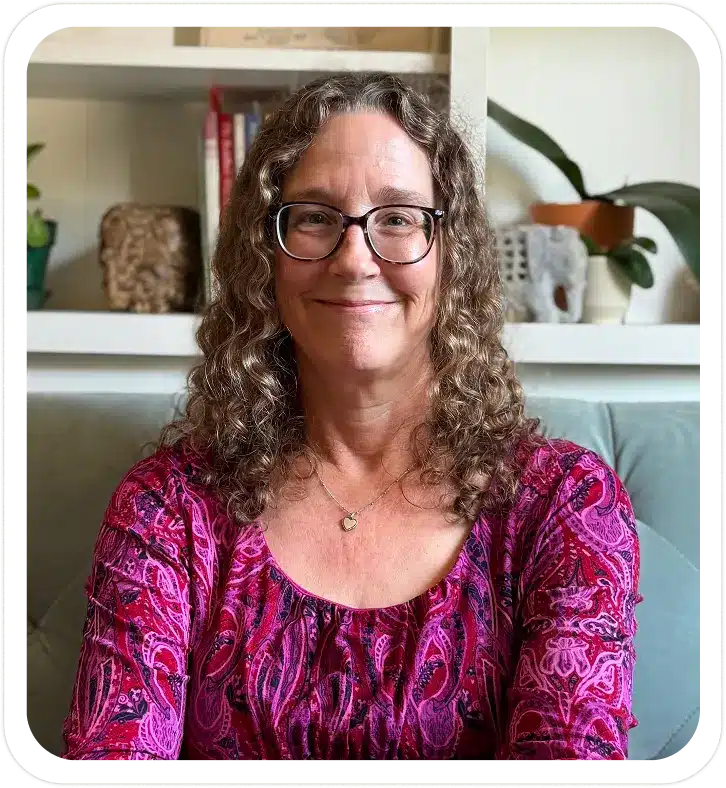
I get asked many questions in my consultation phone calls about anxiety, trauma, EMDR & CBT. I’ve summarized some of these common questions and answers for your convenience.
The initial assessment appointment is 45 minutes long and costs $300. Other therapy sessions are 45 minutes long and cost $285. Please remember that the total cost of therapy is not the same as the cost per session. The total cost of therapy is the cost of all sessions until the desired changes and healing are completed.
With my years of experience and my specialties of CBT and EMDR, I may be more effective and we could end therapy more quickly than with a “cheaper” therapist.
Payment is due at the time of each session. I accept credit cards, debit cards, HSA and FSA cards, checks, and cash. I keep a card on file for automatic processing after each session, but you’re welcome to pay by check or cash if you prefer.
No. I am an out-of-network provider for all insurance companies. If you would like to use your insurance benefits, I can provide a monthly Superbill that includes all the information your insurance company needs to process reimbursement for out-of-network services.
If you create a client account on Mentaya or Thrizer and add your insurance information you can check your out of network benefits for free. Please note that I don’t belong to either platform as a therapist at this time.
https://app.mentaya.com/patient/register
https://www.thrizer.com/for-clients
If you want to contact your insurance provider directly before we schedule our first meeting, provide them the information below:
My name, address, and credentials:
Kate Young, Ph.D.
Psychelogik Psychological Inc
2020 Forest Ave Ste 3, San Jose, CA 95128
CA License PSY18021
EMDRIA Certified In EMDR
Tax ID Number and National Provider Identifier:
TIN: 872228326
NPI: 1912664178
Common Procedure codes and fees:
90791 Psychiatric diagnostic evaluation: $315
90834 Psychotherapy Session Duration 45 minutes $270
Common Diagnosis Codes (but it is unclear which I would use specifically for you until after our initial evaluation is completed):
F43.12 Post Traumatic Stress Disorder, Chronic
F41.0 Panic Disorder
F41.1 Generalized Anxiety Disorder
No, I don’t submit claims on your behalf, but I will provide you with a monthly Superbill that includes everything you need to request reimbursement from your insurance provider. Many clients find the process straightforward once they’ve submitted their first claim.
You can also use either Thrizer or Mentaya to submit claims. Please review their websites regarding fees, if any, for using their services.
Private pay therapists do not have to operate within the restrictions of insurance companies and as a result have the flexibility to create the optimal treatment plan for you.
Following an optimal treatment plan with some possible variety in frequency and length of sessions can help you reach your goals more efficiently and effectively.
I am very experienced in short term therapy and my goal is to help my clients make changes as quickly as possible. It is difficult to predict the length of therapy. Some people can accomplish their goals in 5 to 6 sessions.
Sometimes the length of psychotherapy treatment will be 12-18 sessions. Some people attend therapy for several years. The length of treatment depends on your goals, the complexity of the issues we’re addressing, and how you respond to the therapy. I aim to be efficient and effective in helping clients make their desired changes.
After our initial assessment is completed I will be able to give you a clearer estimate of the number of sessions anticipated. My priority is to help you make lasting progress and keep it in a timeframe that is manageable.
Therapy is an investment you make in yourself to improve your life. The improvements you experience in your wellbeing, relationships, and daily functioning can be hard to quantify but are deeply meaningful. Your investment in therapy should result in increased happiness and better functioning. For many clients, therapy leads to greater self-awareness, increased confidence, and more emotional resilience.
These shifts can improve work performance, increase assertive communication, and improve relationships. This might lead to promotions or better performance in business and higher income. Ultimately only you can determine the value of the potential positive outcomes of therapy.
The total cost of therapy is the cost per session multiplied by the total number of sessions of therapy. My evidence-based approaches of EMDR and CBT are proven to help clients achieve meaningful change efficiently.
With my Ph.D. from Stanford and over two decades of experience, my expertise may result in fewer sessions wasted on surface-level support or trying to figure out what to do next. My fees reflect my high level of expertise, efficiency, and the proven results I bring to the therapy experience.
Yes, I provide video therapy using Doxy.me, a HIPPA compliant Teletherapy service. EMDR can be done either in person or online and both modes are equally effective. I can provide therapy to anyone in California with no restrictions.
However, there are some limits to how much or whether I can work with people in other states since I am currently only licensed in California.
Yes, I have an office in San Jose. Currently my office is at 2020 Forest Ave, Ste 3, San Jose, CA 95128. The office is near Valley Fair Mall and the famous Falafel Drive In and conveniently located near Highway 280, Highway 880, and the San Tomas Expressway.
No, I only work with individuals age 18 and older.
Yes. I work affirmatively with BIPOC and LGBTQ+ clients, and I’m committed to creating a therapeutic relationship where you don’t have to explain or minimize your experiences to be understood. I recognize the impact of systemic oppression, generational trauma, and identity-based stress.
I provide therapy that honors your full identity and addresses the emotional and physical tolls of racism, sexism, discrimination, immigration-related stress, and systemic inequities. I’m a committed ally to my LGBTQ+ and POC clients.